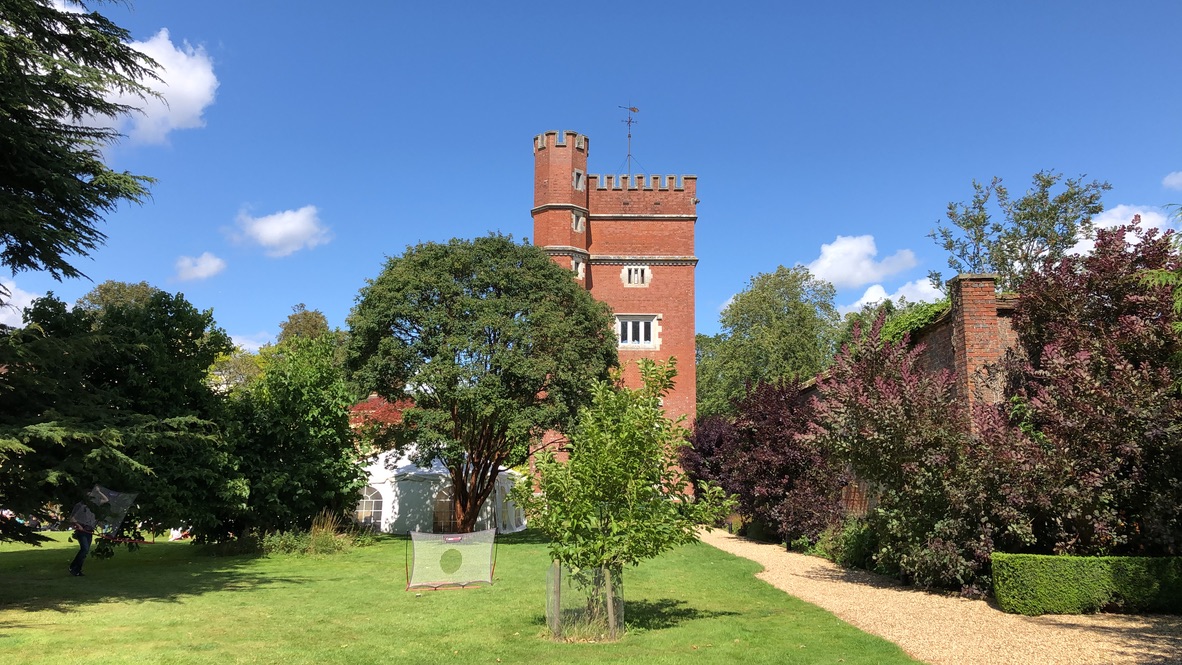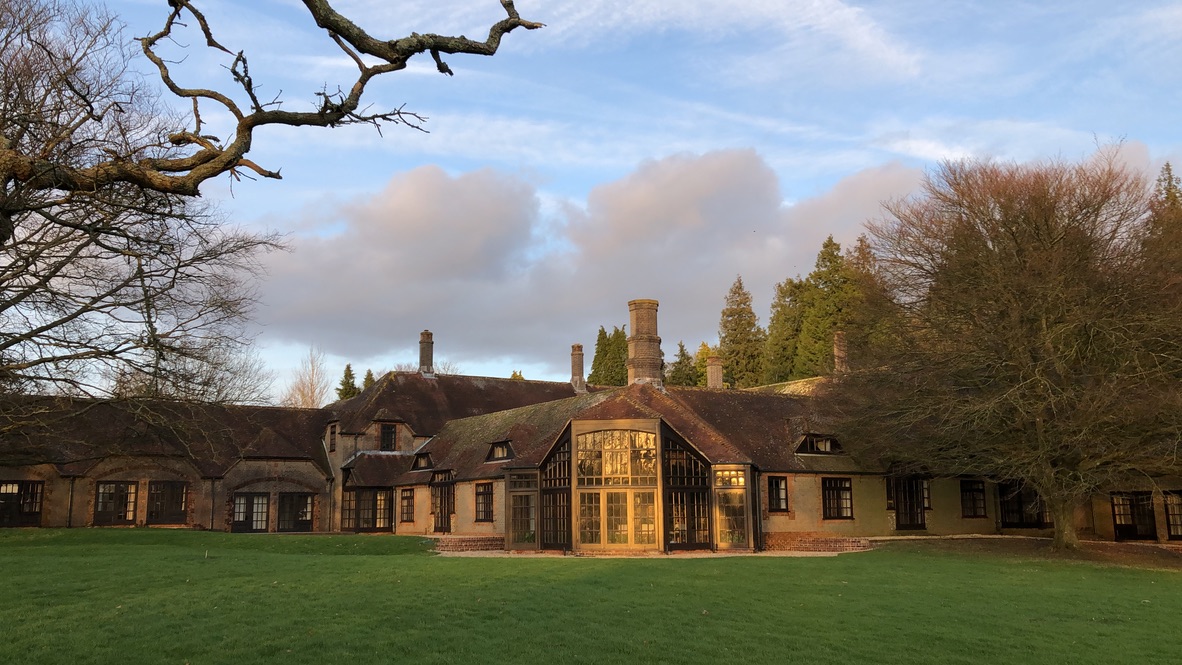The Book of Yourself Newsletter
Issue 17: April 2023
|

|
|
Now is the sky the even milky backdrop for the trees
|
|
that blush and laugh away, the cherry blossoms in full bloom,
|
|
the pear tree bedecked in white, the stately copper beech
|
beginning its display in silky burgundy festooned.
|
|
Now the blackbirds regain the mystic magic of their song
|
|
and change the world, redeem it from its vernal drizzle gloom,
|
|
open the heart and call us frail and wayward children home
|
to earth’s renewed embrace beneath the faithful sun and moon.
|
|
Much has become of us as we have sailed and struggled on.
|
|
The mighty heroes fell, the witches turned us into swine,
|
|
the blinded cyclops raged, the sirens would have bleached our bones
|
until our dogs had licked our wounds and we had saved our lives.
|
|
Our odyssey has been and back on our old native shores
|
we face the sea, forsaking the vainglory of our wars.
|
That was an attempt at giving expression to the combined feelings of burgeoning Spring and the odyssey that is our existence, whose particulars reflect in so many ways the general pattern of the world. This sense of the abiding constants of human experience makes one wonder whether we might not be lived by our own myths. They certainly mirror a great deal of what happens to us. The beauty of nature, with its renascent and decaying cycles, serves as a fitting backdrop for our human struggles. Our personal conflicts are the same as the wars of our ancestors and perhaps fought over the same old fickle motives. The dangers of the journey are not just out there but in our intents and purposes, in our pride, greed and envy, in our desire for security and power, in the everlasting cycle of pleasure, fear and sorrow, in the whole process of becoming. Our lives are the product of our minds and the outer is the replica of what is inside us. The crisis, therefore, is not out there but in consciousness. Should we be lucky enough to make it back to Ithaca, we will still have to meet the challenges of relationship and our responsibility for the ending of conflict. Hopefully, though, this fundamental task of transformation will be aided by the new perspective of facing the sea of infinity.
|
|
“The crisis is not a matter of economics, of war, the bomb, the politicians, the scientists; the crisis is within us, the crisis is in our consciousness. Until we understand very profoundly the nature of that consciousness, and question, delve deeply into it and find out for ourselves whether there can be a total mutation in that consciousness, the world will go on creating more misery, more confusion, more horror. Our responsibility is not in some kind of altruistic action outside ourselves, political, social or economic; it is to comprehend the nature of our being; to find out why we human beings – who live on this beautiful earth – have become like this.”
|
The Flame of Attention, pg. 83
|
At the suggestion of an old friend of mine, and with the expert aid of another old friend, I have been recording the presentations for the online course, The Book of Yourself. The basic idea is to allow those interested to follow the course at their own pace. As the presentations are prerecorded, they would not have to keep up with the grueling weekly schedule of the live sessions. The course content is quite extensive and dense, so this would permit a greater flexibility and therefore a better chance at a careful study and assimilation of the various chapters. We are now in the process of doing the final editing. Once that is completed, we will be announcing this new approach to the course.
|
One of the questions that some of my friends and acquaintances have been asking me is how I came to get involved with all this and why I continue to do so after all these years. The reason, I think, is quite simple. When I first came across K’s teachings, I was instantly struck by their ring of truth. I was fourteen or so when some friends and mentors of mine lent me a book by him. It was the Spanish translation of the 1964 Saanen talks and bore the intriguing title of La mutación psicológica, the psychological mutation. Perhaps due in great part to the difficult environment in which I grew up, by my mid-teens I had some serious questions about the human condition. As far as I was concerned, human existence was tragic and that could not possibly be the way we were meant to live on this beautiful earth. The traditional Judeo-Christian theological outlook, although essentially concerned with the liberation of humanity from its endemic moral ills, did not seem to offer a way out. On the contrary, its dogmatic stance inculcated a dualistic approach to the cultivation of goodness based on the principles of reward and punishment. This pervasive psychological opposition of virtue and sin generated a state of consciousness riddled with guilt and fear. So instead of dissolving the causes of conflict and suffering it was perpetuating them.
|
|
From the first I had the feeling that I had stumbled upon one of the great teachers. For me K was a man of truth, someone who had found it and whose life was dedicated to imparting it openly and compassionately to the world. His fundamental intent of a radical transformation touched on the most universal aspiration of humanity to beauty, goodness and truth. His emphasis on the quality of attention to what is as the key to transformation was itself liberating since it did not depend on any practice or system of belief. For me he was a great religious teacher, a mystic in the true sense of the word, i.e., someone who has the vision of the sacred. When I discovered that he was still alive, I instantly formulated the wish to see and listen to him in person. And by chance – though chance in such matters is debatable – a whole group of Brockwood staff and students ended up spending their winter holidays at my friends’ old sprawling mansion. I was very impressed by the atmosphere of sensitivity, kindness and affection they displayed in their relationships. It was they who asked me if I would like to go to Brockwood. They helped me to write the application, provided the recommendations and I joined Brockwood, where I ended up staying as a student from 1975 to 1978.
|
|

|
The whole Brockwood experience confirmed my valuation of K as a man of truth and a great teacher. It seemed rather miraculous to me that anyone could have such a total understanding of human consciousness. David Bohm also contributed massively to deepening the whole inquiry. My sense was that the teachings were the expression of perennial wisdom in our time, that they covered the whole of life, and that they held the greatest potential for liberation and wholeness. It was interesting to me to discover that K himself felt very much the same about the teachings, as something with a tremendous meaning quite independent of him:
|
|
“I think the teachings cover the whole of human existence. I don’t know if you have studied it. It covers the whole of human life, from the physical to the most inward depth of human beings. So there is nothing in it that sets it apart as a cult, as something or the other. When you look into it, you say, ‘My God’. I personally look at it as a marvellous thing, not because I have said it, but because it is something extraordinarily life-giving. And that life-giving thing can never go dry. Like a spring well, it can never go dry. To me it is so, otherwise I wouldn’t have spent a day on it. I would have become a carpenter or something else.”
|
Don’t Make a Problem of Anything, pp. 15-16
|
It is this encompassing and life-giving quality of the teachings that remained with me and which kept bringing me back to them. They touch on the most essential aspects of our human predicament and their study cannot help but raise our awareness of our own universality. The primary thrust of our culture and the way we live seems to concentrate on the particular or the systematic to the near-total neglect of the truly essential and universal in all of us. So no matter what we might be busy with, what our professional occupation, political outlook or religious inclination, no matter what our socioeconomic status and the innumerable vicissitudes of our experience, we cannot escape the fundamental issues that face us as human being. Society emphasizes the outer and practically ignores the inner. In contrast, the teachings point out the decisive role of consciousness in the creation of reality. They trace with astonishing precision the map of the structural conditioning of human consciousness and its deleterious consequences. It represents a vast and universal diagnosis of the profound psychopathology of everyday life so that we are made aware of our total involvement and responsibility for what the world is. Once one becomes aware of its vast implications, one can no longer shake it all off and proceed to become a carpenter or something else in the world. Nothing wrong with being a carpenter, of course, but what that means is that in the face of the profound significance and life-giving quality of the teachings such things are necessarily of secondary importance.
|
So that is my primary reason for continuing to dedicate myself to the dissemination and study of the teachings, which I consider to be a veritable and universal education for mankind. When you consider the current state of humanity, with the doomsday clock ticking ever closer to midnight, such an educational task is all the more urgent. I think, therefore, that much more would need to be done in this direction than has been done so far. When I contemplate the sorts of activities in which human energy is being invested, I cannot help but feel that a massive proportion of it is being wasted in futile and destructive enterprises resulting from our endemic ignorance of ourselves. So it behooves us to contribute our grain of sand to the foundation of a new world free from greed, violence and sorrow. We need not only to promote the study of the teachings but the setting up of schools, centres and communities of learning, for this is not just a philosophy but a way of life. While it is true that the needful transformation can only happen inwardly in each of us, there is also no denying that we all exist in relationship and as such we are in the same boat and equally responsible for it. So this is not an individual but a human endeavour calling for the greatest sensitivity, care and cooperation. This is something I feel very strongly about and which I would like to invite you to consider.
|
It is raining gently on the vibrant and vulnerable greenery of early Spring. Although the sky is overcast, the blackbirds sing their melodious song late into the twilight. There is a sense of regeneration and beauty everywhere.
|
Take good care, amigos, and may that beauty touch your hearts,
|
Photos: J. Gómez Rodríguez: 1. The Water Tower, Brockwood Park School; 2. The K Study Centre, Brockwood Park, Bramdean, UK.
|
|
|
|
|
|
|
|